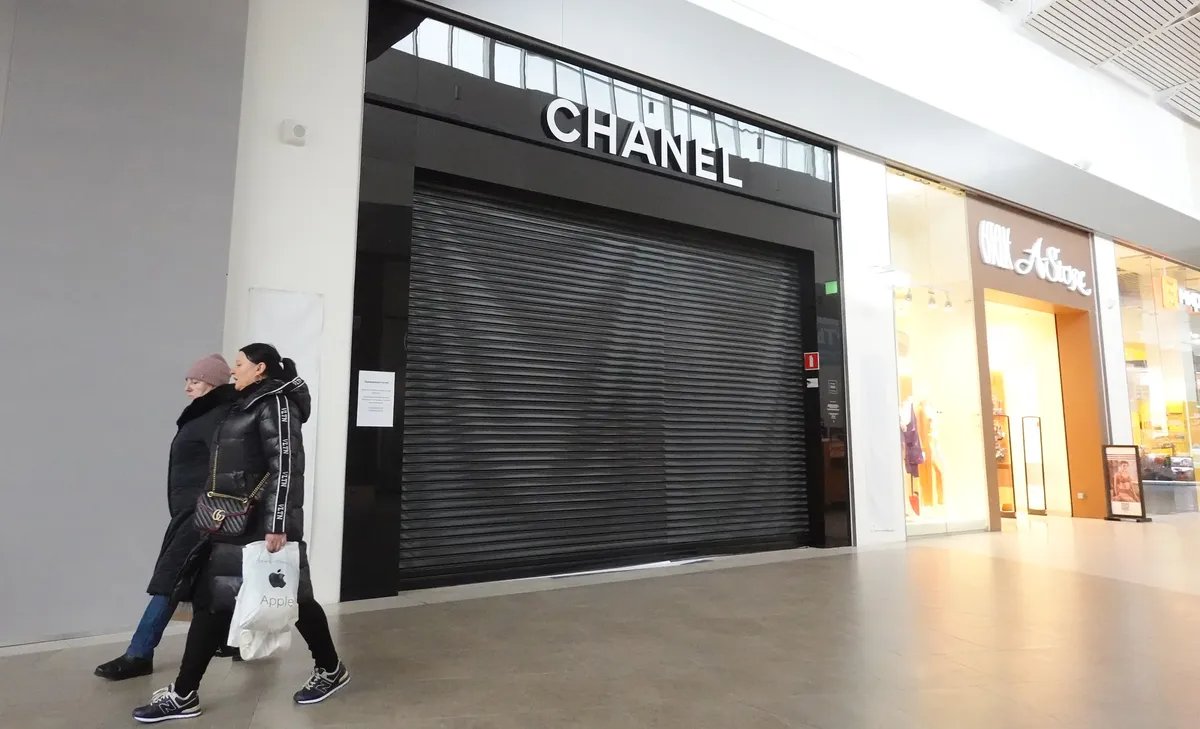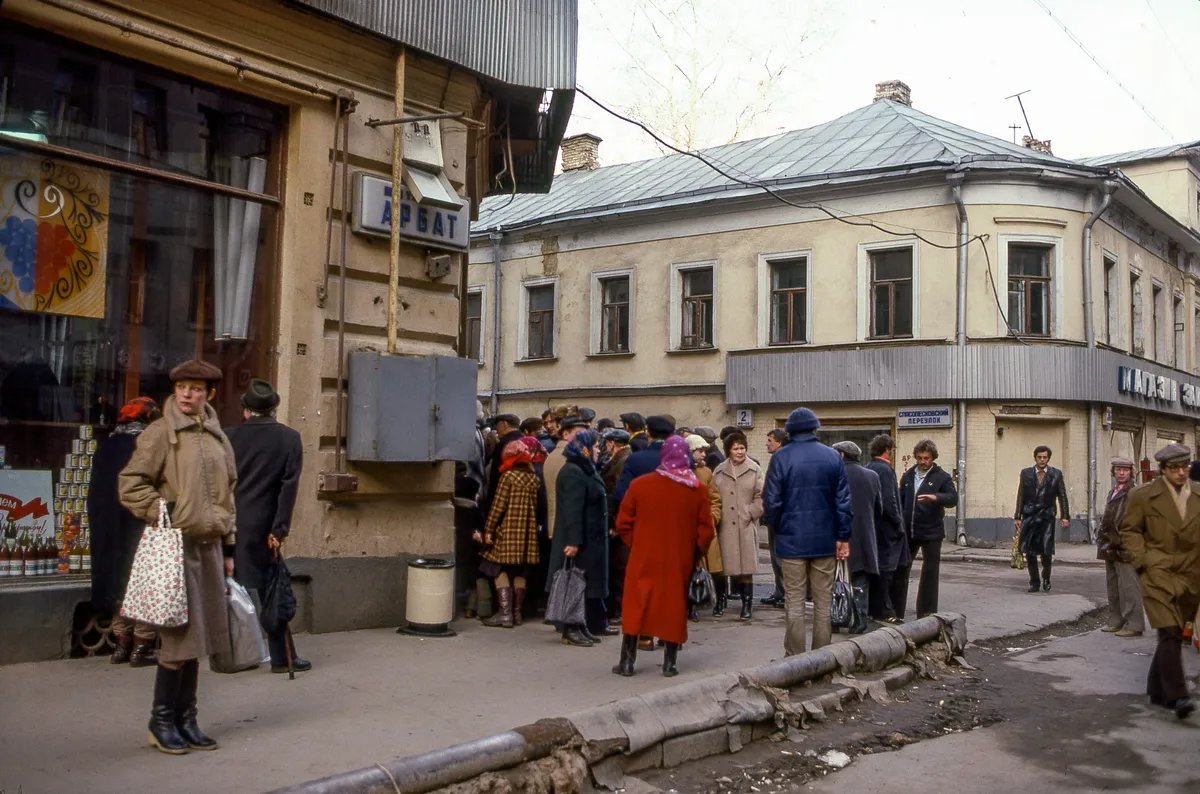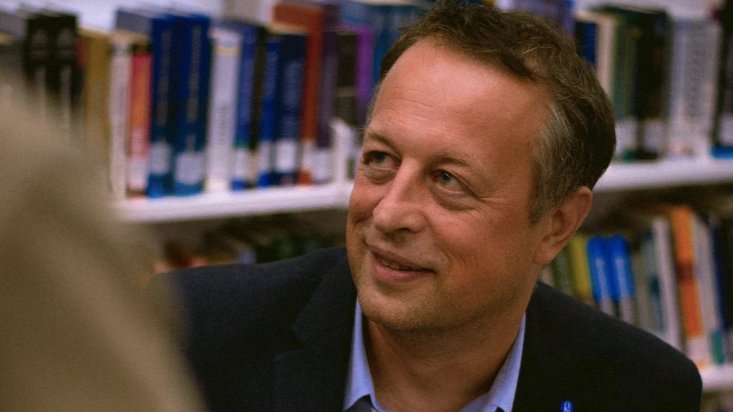Of course, I have to start with the criminal case that landed you on the wanted list in Russia. I won’t ask what for but I am very interested to know why. Every expert who left Russia and who I have been speaking to lately all have arrest warrants issued for them. Why are the Russian authorities doing this?
It speaks more about your social circle… But I think that the overall explanation to this is the general dysfunction and disintegration of Putin’s power. Of course, talking about the power collapse amid the Ukraine invasion and city bombings seems a little strange. But take a look at this madness that’s unfolding and how harmful the state’s interference in economy, science, and education has become, it’s much worse now than it was in the 1990s. In everything. These cases against scientists and efforts to squeeze them out of the country, all these cases about “fakes”, sham embezzlement cases opened against people who speak out against the war. This is
an enormous state failure: when law enforcement and security bodies are hunting anyone who stands against this criminal war instead of doing their jobs.
The Russian Federal Security Service has led the country to its biggest loss of security ever, terror attacks, and deaths of dozens of thousands of people. If a country’s security service only decreases, rather than increases, the security of its citizens, why have such a service at all? Steps taken by the Investigative Committee have in reality led to a surge in crime rates — more shoddy cases, lawless verdicts, and so on. It is actually pointless discussing individual cases against this backdrop.
Tell me about the failure in the economy. We are not seeing the collapse predicted by the opponents of the regime when the war just broke out.
I don’t know who was predicting any extraordinary collapse. People who talked about this apparently don’t understand how the economy works. They don’t understand that even during a war, even when the enemy captures half the territory, people still somehow live. I recently spent two weeks in Kyiv. This is, of course, the deep rear, but a large part of the country is occupied, a third of the economy is destroyed, but people live, work, go to restaurants, cafes. Although Kyiv is full of people in military uniforms and everyone in the city has relatives who joined the military as volunteers, and every family has casualties, life goes on. Those who believe that the economy can collapse because of sanctions simply have delusions about how the economy works.
That’s what I’m saying: there’s no failure, everything’s just fine. If you visit Moscow or St. Petersburg, you practically won’t notice that this country is at war and its president has an arrest warrant issued against him for war crimes.
I’m not sure about that either. Yes, I hear this from many people. I spoke with Western correspondents, and they also say that nothing has changed in Moscow. But it depends on what catches your interest in Moscow. If you’re interested in education or science, it’s all gone practically. You can’t attend a popular science lecture. You can’t attend a poetry gathering; you can’t go to a meeting with an author. The overwhelming majority of lecturers, poets, and writers have been driven out of the country, while the remaining ones are not allowed to mention any sensitive or important topics. That is, for a person who only consists of their mouth, nothing has changed, perhaps. But if I were in Moscow, everything would be different for me.
But how does it affect the people who support the war?
It’s a weird type of arrogance to think that these people have lost nothing. There are various kinds of pseudosociology polls and surveys that are currently being conducted.
Pseudosociology?
Just because once respected people conduct these surveys doesn’t make them any less pseudosociological. Meanwhile, the sentences given for social media posts against the war are the real indications of support for the war.
People wouldn’t be sent to prison for posts online if support for the war was as high as they say it is.
If there was support for the war, people would volunteer in thousands. Not to join the Wagner Group mercenaries who are paid ten times the average salary — they are not volunteers, they are nothing but hired guns — but as real volunteers. But we are not seeing this. If there was support for the war, there would not be hundreds of thousands of refugees. Therefore, I would say that all objective data indicates that there is no support for the war. It does not exist in these people who live deep inside the country. But pseudosociology says it does.

A closed Chanel store in Moscow. Photo: EPA-EFE/MAXIM SHIPENKOV
Let’s try to separate what the country is doing to itself by chasing out artists, imprisoning scientists, and everything else you’ve mentioned from what the West is trying to do to the country…
And what is it that the West is trying to do? The West wants Russian troops to leave Ukraine and stop bombing Ukrainian cities. I think it’s quite a noble goal.
So, do you believe that the measures the West is taking to achieve that are effective enough? How can economic sanctions stop the bombings?
In the most minimal way possible. We need to understand that the liberation of Ukraine is achieved by the resistance put up by its armed forces and peaceful Ukrainians. Economic sanctions play a part in it but a small one. This assistance is less vital than weapon and technology supplies or training and re-training of Ukrainian soldiers.
Why then the West imposed economic sanctions straight away but launched arms supplies and re-training of soldiers much later?
Because some sanctions can be easily imposed, some not so much. They started with the easiest part. Moreover, some measures were not sanctions per se, rather just reactions of businesses who realised how bad it was for their brands to continue working in Russia.
So, how did all of this combined, the sanctions imposed over the year and business reactions, affect the Russian economy and Russia’s actions by proxy?
There is no influence of sanctions on the economy. The war unleashed by Putin is what affects the economy. Sanctions are a consequence of Russian planes bombing Ukrainian cities, Russian tanks crawling along Ukrainian roads, and Russian soldiers killing Ukrainians. Therefore, talking about the influence of sanctions is like talking about the influence of fever on illness.
So, the war has a negative impact on the Russian economy. Negative in the sense that the GDP has fallen: instead of a +4% we have -3%.
Consumption and the retail sector have dropped by almost ten percent. It means that citizens have suffered more than the GDP. And it’s understandable: manufacturing a tank provides a large contribution to the GDP. However, when it’s destroyed, it’s not subtracted from the GDP. The tank, the resources spent on it, and the hours of labour are pure costs that are taken away from the Russians. Ideally, the cost of a tank should be deducted from the GDP immediately, rather than added. The GDP generally becomes a poor indicator of the country’s economic life when the military conveyor belt gets going.
Everything that is happening makes the Russian economy more primitive, more backwards. This makes backwardness and primitivism more persistent. And I think we are seriously going to follow the Soviet Union’s path from the 1970s to the complete economic implosion of the late 1980s.

Queue to a Moscow grocery store, 1983. Photo: Mikki Ansin/Getty Images
Will this be an implosion of the same scale or an even bigger one? Because the height from which the country will have to fall is greater?
I think that it will be a smaller catastrophe because there are very powerful mechanisms in place which were not present in the Soviet economy. This is a market which is still much more intact than it was in the Soviet Union. To some extent, it cannot be fully destroyed. So, it won’t deteriorate to the Soviet level. However, the stagnation can reach the level that will cause the full collapse of the state government machine, as it happened in the 1990s.
Hasn’t it already begun? Because you already mentioned the complete government dysfunction in the beginning of our conversation.
It has but it is not happening as fast.
What will the full collapse look like?
I think that the collapse will simultaneously start happening on various fronts. Some divisions will stop following attack orders, for example. They might start retreating. They might start protecting some frontlines but won’t follow command orders generally. Turmoil will likely spill onto the streets of major cities at some point which will force the authorities to redeploy troops from the frontlines. It might be similar to what was happening in 1916-1917. The events that took place 100 years ago will replicate themselves in the new world with smartphones.
You are talking about the regime in general, the establishment, but what will happen in the economy? What will this collapse look like to an ordinary person in an ordinary city? Will it be like in Venezuela?
What about Venezuela? People have been emigrating from Venezuela en masse as well lately but 90% of the population remains in the country and continues to live. Do you think they are having less sex or don’t eat as much there? It does not mean that nothing works there anymore.
At some point Russia was proud of its telecommunications, mobile networks, and Internet banking. But all these spheres are now going through painful changes after Western countries left Russia and took their servers and software with them. How will this affect day-to-day life?
You must be completely indifferent to sports.
I am interested in it, to an extent. But I do understand what you mean: there’s practically no sport anymore. Do you think that this is the worst thing in this situation?
Millions of people are interested in sports. And these millions of people every day see what Russian athletes lose because of the war. I don’t know to what extent they see that it happens precisely due to the war but it is not normal, it is yet another indication that the standard of living has dropped because of the war. The situation in sports now is even worse than it was under the Soviet Union, Soviet clubs then were able to take part in international competitions then.
I turned to sports because you mentioned some imaginary people who are not affected by what’s happening in Russia. It does affect them, daily. People every day see that our football clubs, our national teams cannot take part in competitions. And if the topic of sports does not come up in your conversations, it means that you have the wrong sampling. Because the most notable consequences of the developments in Russia are sports, Netflix, and music for the younger generation.
And if we look into a more senior generation? Those who vote for Putin? What consequences are most notable for them?
Their opinions are not as important because they will not be part of the new Russia, a Russia without Putin. This time will not come any time soon.
How do you envision this time “without Putin”? Let’s imagine that it has come, talks have begun, the war is over. The sanctions will surely be in place for a while, right?
Of course, they won’t be lifted immediately. People who enjoy top leadership positions now will continue to occupy most of them. This will be an agonising process. Let’s hope that political prisoners will at least be released as soon as it comes and that sham criminal cases will be binned. You can, of course, chop completely incompetent heads of the Investigative Committee or the FSB, purely because they make a parody out of investigation and security, but you cannot replace detectives and other staffers quickly.
Even if you cast away all the judges who delivered unlawful verdicts, it will still be a drop in the ocean. The process will be a long and strenuous one.
It’s worth noting that it will only be the beginning of the struggle for those people who oppose the war and want to see a renewed Russia, strong but peaceful. It will not be the end of this fight but the dawning of it. It will be necessary to actively bring others round.
Will Russia have to start from square one in economy? The whole structure is being destroyed now. How will the country reassemble it anew later?
What is happening now is not destruction. This is unfortunately the tragedy that the brightest people were writing about a year ago already. It’s not destruction but a regression to primitivism which is a terribly persistent thing. You somewhat make everything more primitive and worse, laying foundations for a future stagnation.
Iranians live just as badly under the Islamist regime as they did 50 years ago under the Shah. Russia is much better off than in the 1980s, despite everything that happened in the 1990s. Meanwhile, Iranians live pretty much the same way they did 50 years ago. Russia is now singlehandedly building an economy that will stagnate for many years to come. Talented kids will grow up and move overseas, just like in Iran.
What can be done about it? Everything is getting more primitive, the economy will be simplified to an extreme degree. How can Russia at least reinstate the level seen in January 2022?
There will be some growth points. They will have to fight to get some sanctions, prohibition duties and laws rolled back… But how can it be done if the country doesn’t carry out any reforms?
Let’s try to imagine the most optimistic scenario.
I don’t see any happy scenario here. I generally can’t see any movement towards sustainable growth here.
Why? Such a scenario emerged in Russia even after 70 years of the Soviet Union, Yegor Gaidar (Russian economist, architect of shock therapy reforms administered in Russia after the fall of the Soviet Union — translator’s note) managed to revive the economy. Why do you think a new Gaidar cannot enter the scene?
It only became possible then after a horrifying breakdown. Twenty years of stagnation were followed by an economic catastrophe of epic proportions, and only then there was growth and revival. As we know, the economic reforms were enough but the political ones could not prevent the situation we are in now — genuine fascism.
Which stage are we in if we compare it to the Soviet Union? Are we moving towards a stagnation or a complete collapse already?
The economy has been stagnating for a decade now. I think that we are somewhere in the middle. Do you even understand what a collapse is, what 1990 was like? It shortened the lifespan of everyone who lived then. This scenario is not a good one to hope for in terms of a future economic recovery. Whatever growth rates in the 1990s and early 2000s were observed, we have been constantly lagging behind the rest of the world this whole time. And I really would not like to think that we will be moving from a stagnation to a full-blown collapse for the next 10-20 years. It is not fun.
But the growth won’t start from square one, right? There’s some experience, there is, in your own words, a working market economy, there are trained experts. In other words, we have something that the Soviet Union did not have, something that Gaidar did not have. Can a new Gaidar emerge at all after all this horror show is over?
In 1991, many a scientist tried to flee Russia. It was mostly those who were trying to escape the Soviet Union before but could not do that. When they got this opportunity, it turned out that it was still hard to leave because there was no diaspora, there was no huge social network, no experience, no skills. It held back a lot of people. We now see that more people fled the country in the past year than in the 1990s. The damage inflicted on Russia’s science and education spheres is greater than the one that happened over the 1990s. Around 30 years will be needed to replenish it and return to the state of 2021.
So, you are saying that the war will end but there’ll be no one to revive Russia’s economy?
There will be people who will be able to revive it. But it will not be the strongest and most talented people from 2021, but the ones from 2031, say. And they will be much weaker because Russia’s science sphere has been devastated. You keep trying to put me in this apocalyptic corner but there will be no apocalypse.
What word would you use to describe the picture you are painting? We will be living in a small marsh or a bog?
Yes, precisely.
And you don’t see any way out?
No, I don’t. But that’s just me. There might be some people younger than me out there who will see one. I hope that the future government will have people aged 30-35, or a generation younger than me.
Join us in rebuilding Novaya Gazeta Europe
The Russian government has banned independent media. We were forced to leave our country in order to keep doing our job, telling our readers about what is going on Russia, Ukraine and Europe.
We will continue fighting against warfare and dictatorship. We believe that freedom of speech is the most efficient antidote against tyranny. Support us financially to help us fight for peace and freedom.
By clicking the Support button, you agree to the processing of your personal data.
To cancel a regular donation, please write to [email protected]

